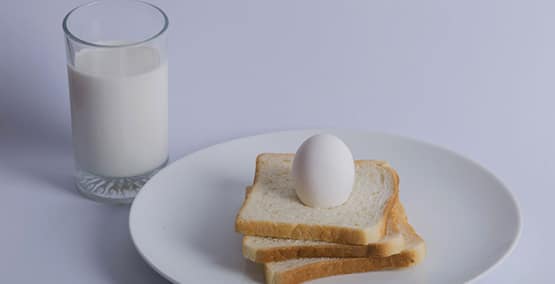
Milk and eosinophilic esophagitis: What every parent needs to know
In eosinophilic esophagitis (often called EoE) inflammation with a narrowing of the esophagus often makes it difficult to swallow and can lead to food getting stuck there.
Although we don't yet have a full understanding of why certain people get this problem, recent research has shown that the longer a person has increased eosinophils (the white blood cells that are increased in allergic disorders) in the esophagus, the more likely that person is to develop this narrowing. So, treatment should begin as soon as possible to prevent this narrowing.
The Six-Food Elimination Diet
A study from the Northwestern Pediatric Gastroenterology Division showed that removing six foods from the diet (milk, eggs, wheat, soy, peanuts/tree nuts and seafood) resulted in symptom and biopsy improvement in 74% of the children who were treated with this diet—with a significant decrease in the inflammation of the esophagus. When the same diet was used in adults, only 50% responded in the same way.
The lessons were clear:
- Diet plays an important role for most patients.
- Eliminating foods that cause allergies can make a huge difference.
- It's vital to recognize and treat the problem as soon as possible.

Adding Foods Back
But it's also true that eliminating all 6 of these foods is hard and could result in nutritional deficiencies if done for a long time. So the same group began to slowly add these foods back into the diet, re-examining the children and their esophagus with each new food. (A Kagalwalla et al, JPGN 53: 145, 2011)
They reported on only 26 patients, but what they found was important: 11% of the patients had no problem after introducing all of the foods back; 72% reacted to 1 food; 8% reacted to 2; and 8% reacted to 3 foods. What was particularly interesting was that cow's milk was the culprit 74% of the time and was 8 times more likely to cause problems than wheat which was involved 26% of the time; and 14 times more likely than eggs, which was seen 17%. As you can see from the table, soy was only involved 10%, and peanuts 6% of the time.
Foods involved in Eosinophilic Esophagitis
Percent of patients reacting to these foods are as follows:
- Milk: 74%
- Wheat: 26%
- Eggs: 17%
- Soy: 10%
- Peanuts: 6%
What Do These Findings Mean?
The very good news is that for the majority of patients (at least those that were tested), a broad elimination diet may not be needed. Milk is a common culprit and perhaps a possible first step may be taking away milk alone.
But you'll notice the figures add up to more than 100% because 16% of the time, more than one food was involved, and sometimes, milk isn't the cause (or the only cause).
Additionally, it's worthwhile noting that occasionally foods other than those listed here (for example oats, rice, and fruits) can cause problems.




